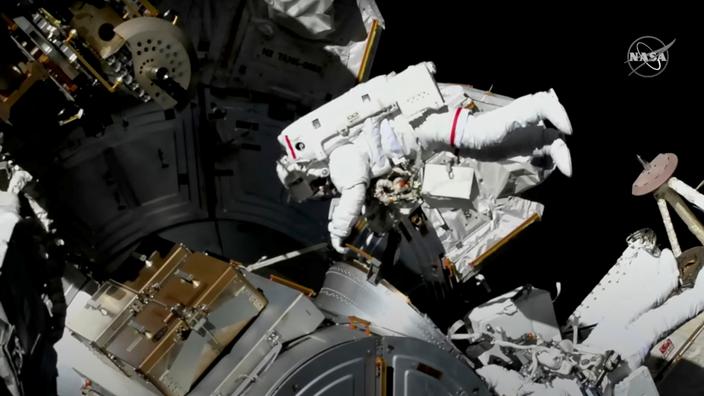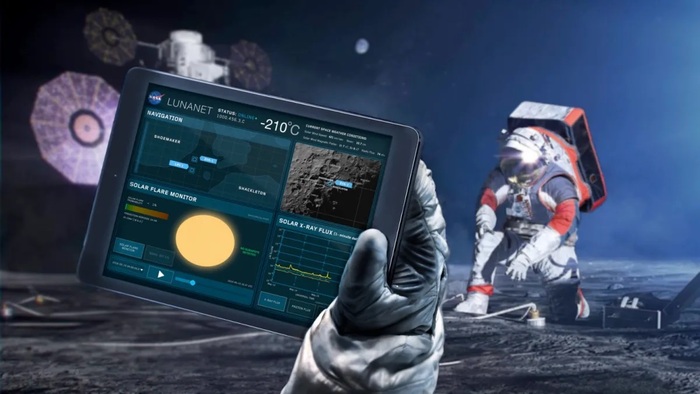Anticipating the future retirement of the International Space Station, NASA announced Thursday, December 2, that it had signed contracts with three companies to help them develop private space stations, a step closer to the commercialization of space.
The three companies are Blue Origin, Nanoracks, and Northrop Grumman, which will be awarded $ 130, 160, and $ 125.6 million, respectively.
Had Axiom Space already won a similar $ 140 million contract last year.
Read alsoBattle over NASA's lunar contract
"We are teaming up with American companies to develop space destinations that people can visit, where they can live and work,"
NASA boss Bill Nelson said in a statement.
NASA strongly encourages the privatization of low orbit in order to save money and focus on more distant exploration missions to the Moon and Mars.
The amount invested today by NASA to launch this program is small compared to the money that will be required.
"
Brent Sherwood of Blue Origin
The future of the International Space Station (ISS) is officially assured until 2024 and NASA has confirmed that it can technically operate until 2028. Bill Nelson has spoken in favor of its extension until 2030. The goal is then for the private stations to take over, putting an end to the current international cooperation on the ISS, in particular with Russia.
These contracts
"will help ensure the United States a continuous human presence in low orbit
,
"
Phil McAlister, director of commercial flights for NASA, told a press conference.
"A hole
(in this presence)
would be damaging."
To read also To protect humanity, NASA will deviate the trajectory of an asteroid
The American space agency wishes in the future to be able to hire the services of private companies for its needs, without having to finance the operating costs of a station. She estimates that she will need to be able to send two astronauts into orbit continuously, and perform some 200 experiments per year. Blue Origin's station, developed with Sierra Space, is called Orbital Reef. It must be able to accommodate up to 10 people, and serve a variety of actors: tourists, businesses, or public actors. That of Nanoracks, called Starlab, aims for a take-off in 2027. Northrop Grumman is still working on a name, but also provides areas for science or tourism. Axiom's project is a little different: a module must first be attached to the ISS, before the station ison secondment to become independent.
No company has given an estimate for the price of developing these stations.
But
"the sum invested today by NASA to launch this program is small compared to the money that will be required,"
said Brent Sherwood of Blue Origin.
The agency's contribution to these projects does not exceed 40% of the total investment amount, said Phil McAlister.












